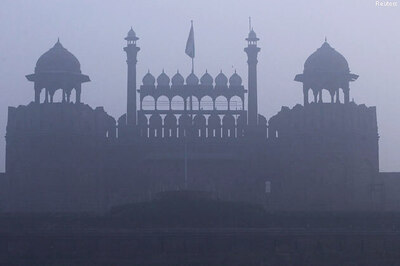
views
Finance Minister Nirmala Sitharaman on Wednesday proposed a massive hike in tax exemption on leave encashment of non-government salaried employees – to Rs 25 lakh from Rs 3 lakh.
“The limit of Rs 3 lakh for tax exemption on leave encashment on retirement of non-government salaried employees was last fixed in the year 2002, when the highest basic pay in the government was Rs 30,000 pm. In line with the increase in government salaries, I am proposing to increase this limit to Rs 25 lakh,” Finance Minister Nirmala Sitharaman said while announcing the Union Budget for the next fiscal year that starts April 1.
ALSO READ: Budget 2023 LIVE News Updates: PM Modi Hails ‘Historic’ Budget; Income Tax Relief Star of Sitharaman’s Speech
What is Leave Enchashment?
Basically, leave encashment is when employees in the organised sector are given money in exchange for periods of leave not taken in the year.
Most companies offer employees three kinds of leaves – earned, casual and sick. The latter two usually lapse if not availed while some companies allow their employees to carry forward earned, or privileged, leaves.
This means if you have 10 days of earned leave (or leave with pay) available at the end of the year, you may add this to quota of earned leave for the next year.
However, even companies that allow leave to be carried forward permit it only to a certain threshold – either in terms of days or a certain time in the next year.
These can then either be lapsed or encashed, depending on company policy.
How Will This Impact You?
The massive hike in leave tax exemption on leave encashment comes as the Narendra Modi-led government aims to provide relief to middle-income class reeling under inflationary pressure.
Sitharaman today also proposed a slew of income tax changes and reduction in customs duty.
A rebate under section 87A has been enhanced under the new tax regime from current income level of Rs 5 lakh to Rs 7 lakh. Thus, individuals opting for new income tax regime having income upto Rs 7 lakh will not pay any taxes.
She also proposed to reduce the highest surcharge rate from 37% to 25% in the new tax regime. This would result in reduction of the maximum tax rate to 39 per cent.
However, India will lose Rs. 35,000 crore of net tax revenue after the Union Budget tweaked direct and indirect taxes, Sitharaman said.
Read all the Latest Business News and Budget Live Updates here




















Comments
0 comment